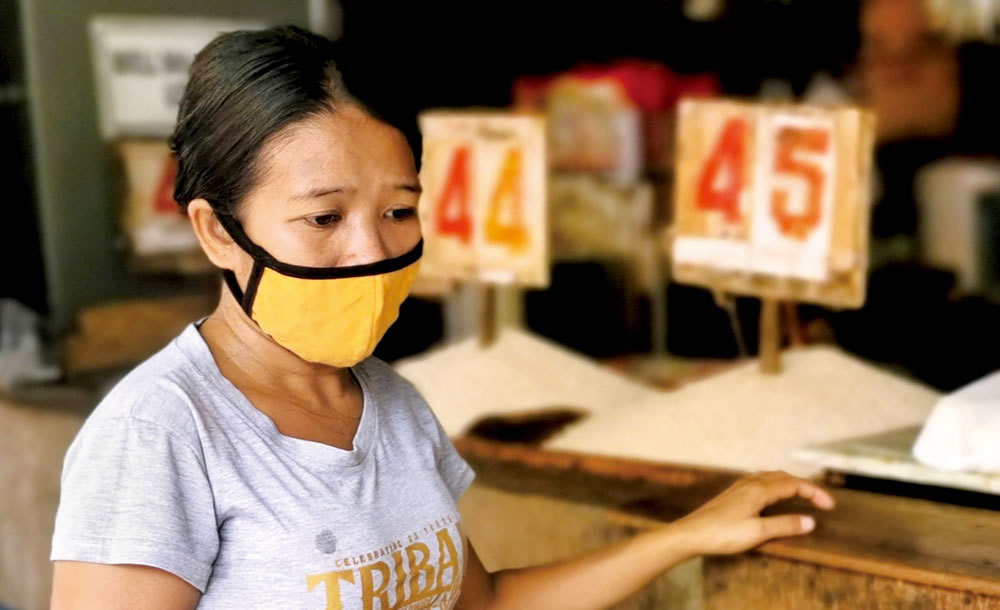Story of struggle in the pandemic (2)
Daranee: We must hang on
“Mum has come back home since the beginning of the COVID-19 outbreak. I’m happy. It used to be just my grandparents and me. Now I get to see Mum every day after school. Mum is going to have a little sister for me soon, too,” says happily Paeng, 10, a World Vision sponsored child.
Although the innocent words of her daughter put a smile on Daranee’s face, the reflection in her eyes showed her despair. “I’ve been jobless for almost eight months. I worked as a traditional Thai masseuse in Pattaya. I have been in trouble since February, from the beginning of the COVID-19 outbreak. There were no tourists. Since the massage parlours were ordered to shut down temporarily to prevent the spread of the virus, I have been unemployed. On the one hand, it’s nice to come home to be with my daughter, but on the other hand, I’m troubled because I don’t know how to provide for my family since we don’t have any farmland.”
Daranee has received a remedy fund of 15,000 baht from the government and necessary supplies from the local administrative agency. However, the support is not sufficient to keep her family going for eight months without income. The only source of income that has been sustaining this family of five is the salary of the father, who can still work at a cassava starch factory. The family must exercise extreme frugality to survive. “It’s difficult but we need to hang on. We pick wild vegetables to eat with chilli paste,” shares Daranee.
Daranee’s eyes with a sad reflection turned brighter when she started talking about how her family has received support from World Vision’s COVID-19 recovery and mitigation project. “I was worried about everything at that time, especially when it was time for Paeng to go back to school. I didn’t know how to make any income to buy her a school uniform. But now I’m relieved because World Vision staff have given her school supplies, school uniform, and student shoes –everything Paeng needs at school. My worries about making money to feed all my family have also been lessened because World Vision has given us some food supplies.”
She continues, “My biggest concern is about my livelihood in the future. I’m going to have a new baby soon. The idea of finding a new job must be put aside. I’m so glad that World Vision has supported us to establish a safe household food source and taught us to raise catfish for a living. They’ve given us catfish fingerlings, helped us build a compact fishpond and given us some fish feed. The fingerlings have given me hope. They will not only keep my family fed but also give me a livelihood in a difficult time caused by the pandemic.”
“The catfish are still small. Mum lets me help feed them every day. When they’re fully grown, we’ll be able to cook them to eat or sell them,” says Paeng joyfully.


 Gift Catalogue
Gift Catalogue VisionFund
VisionFund Share.LOVE Wedding Favour Donation (Hong Kong)
Share.LOVE Wedding Favour Donation (Hong Kong) Share.JOY Cash Gift Donation (Hong Kong)
Share.JOY Cash Gift Donation (Hong Kong) Share.LOVE Wedding Favour Donation (Macau)
Share.LOVE Wedding Favour Donation (Macau) Share.JOY Cash Gift Donation (Macau)
Share.JOY Cash Gift Donation (Macau) Your Red Packet
Your Red Packet  Legacy Giving
Legacy Giving Project Support
Project Support Local Programme
Local Programme Help Children in Need
Help Children in Need Donation to Where Most Needed
Donation to Where Most Needed


























